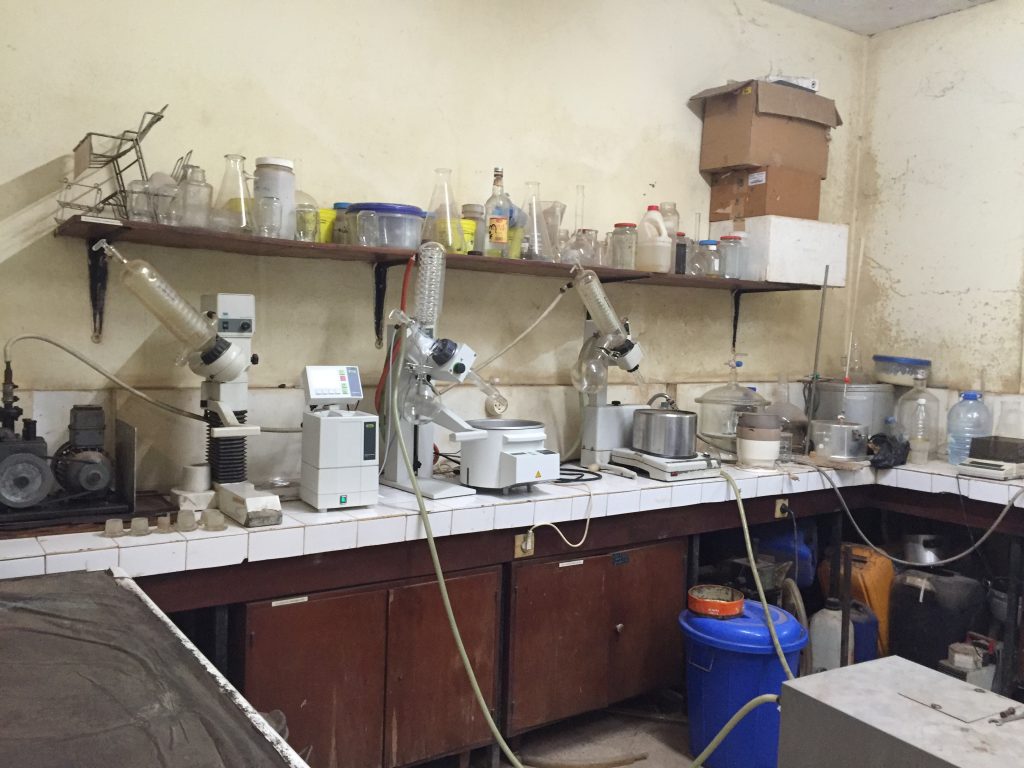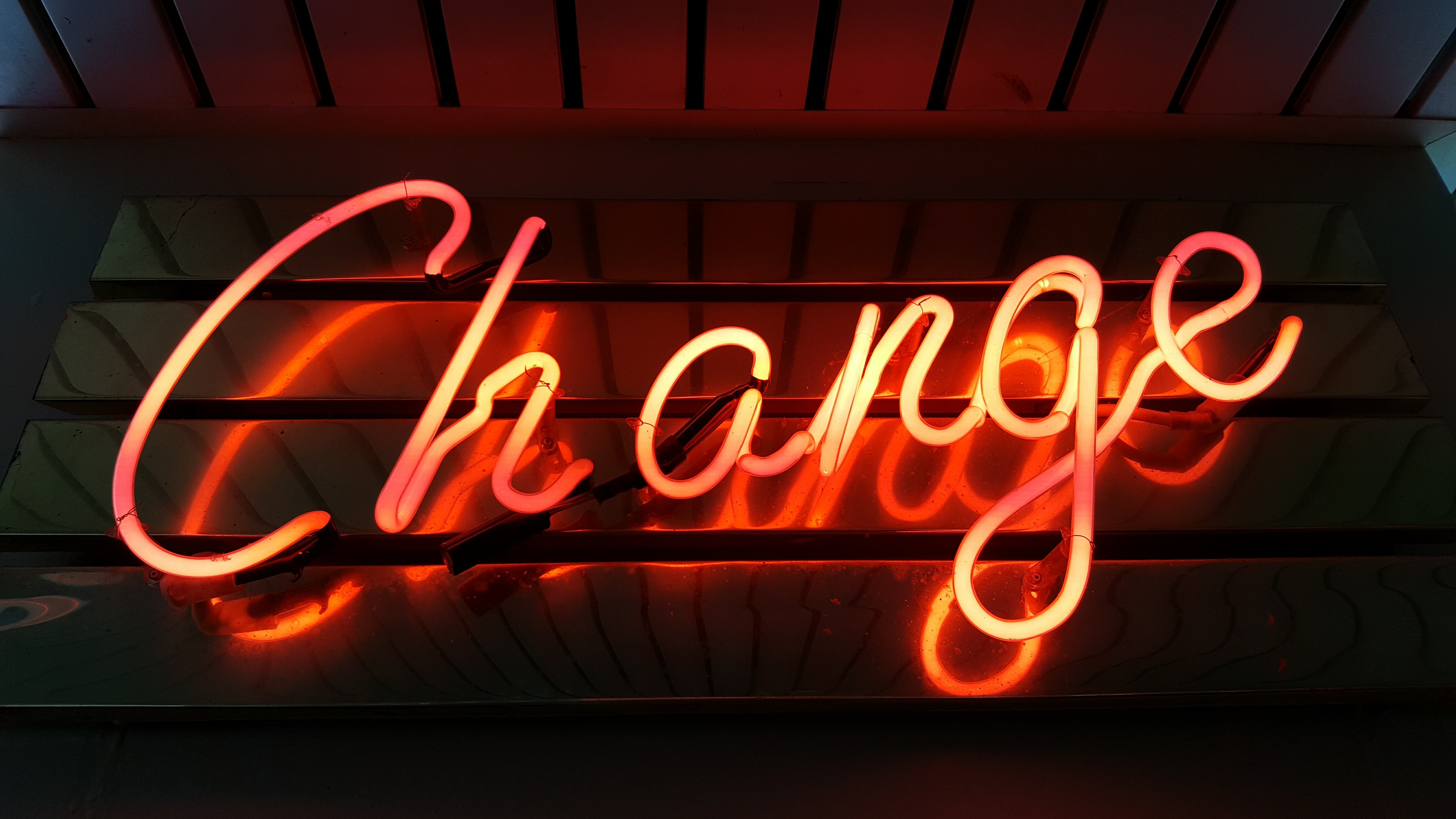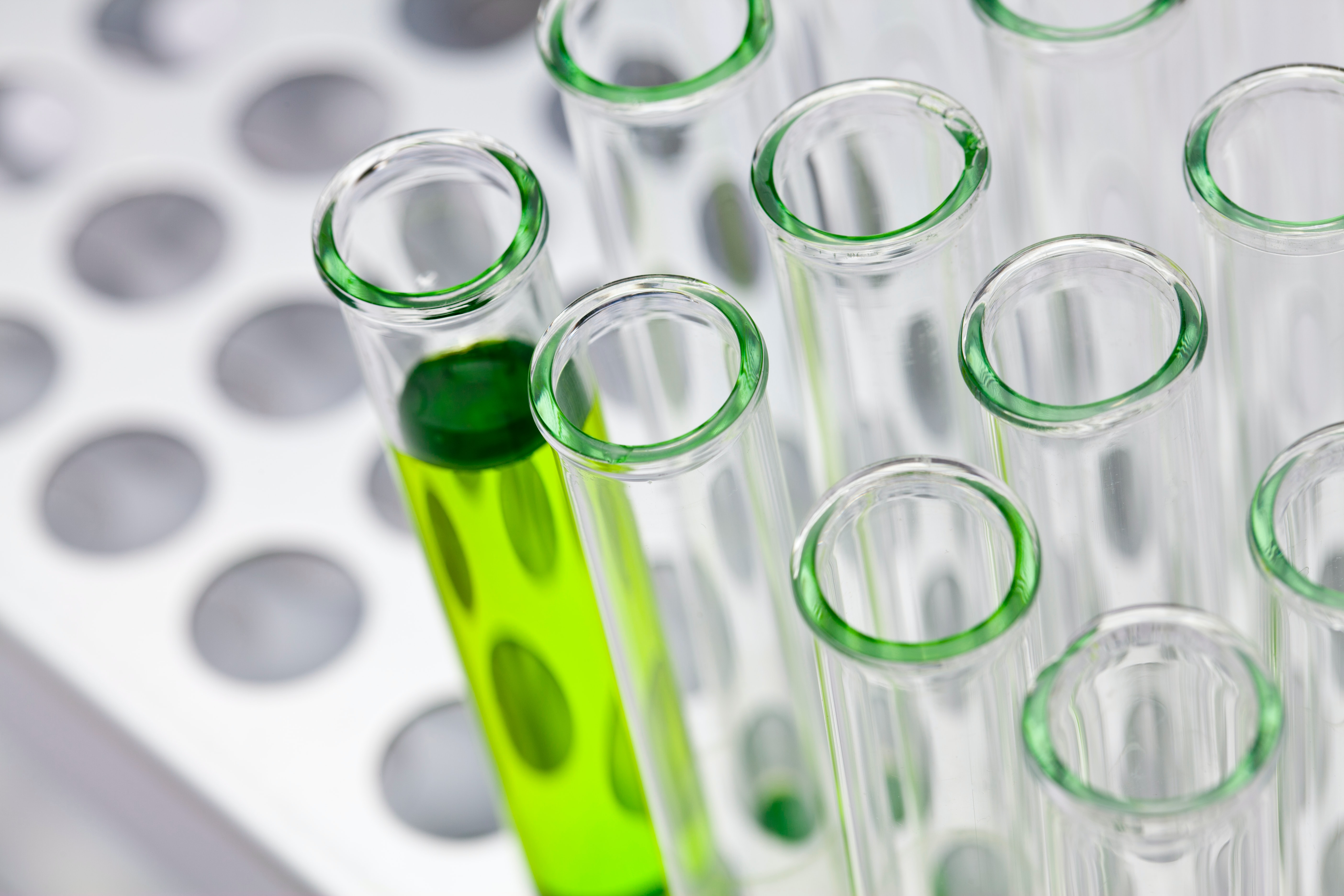A27. Laboratory management (ROPE-FAST) in
Burkina Faso & Uganda
The ambition is to empower the laboratory management and accreditation of advanced laboratories and ensure financial viability through selling laboratory services. The collaboration with Senexel in Burkina Faso began in 2020 and with St Michaels in Uganda in 2024. Both laboratories s attended HR&S training in 2021, after which the HR&S Network of Technicians was initiated. The ActionInvest FAST is empowered by the Network.
Knowledge sharing, consultation by HR&S Expert advisers, and internship arrangements by HR&S Branch Burkina contributed to the accreditation process at Senexel. The first phase of the collaboration was concluded in 2021. We remain in contact through the FAST Network.

Burkina Faso
Background
About laboratories in Burkina Faso:
Clinical laboratories In 2002 the government of Burkina Faso created a specific department for clinical laboratories within the Ministry of Health whose mission is to coordinate the development of laboratory medicine. In 2004, the Department of Laboratories conducted a situation analysis on the status of clinical laboratory services in Burkina Faso. The study found that the laboratory system consisted of 160 public and private laboratories (national reference laboratories, regional hospital laboratories, and district medical center laboratories). Most laboratories (80%) failed to meet the basic requirements for adequate functioning: lack of laboratory supplies, reagents, equipment, and poor laboratory infrastructure (unique room for all laboratory works, cracked walls, broken ceilings, and no water and electricity supply). The results of this evaluation led to the development and adoption in 2006 of a national laboratory policy and strategic plan. One of the objectives of this policy was to improve the quality of laboratory services.
Quality assessment: The National External Quality Assessment (NEQA) program of Burkina Faso is a proficiency testing program mandatory for all laboratories in the country since 2006. NEQA was established through a Ministry of Health decree. The program runs two cycles per year and covers all areas of laboratories. The main challenges of the NEQA programme is funding, sourcing, and safe transportation of quality panels to all laboratories countrywide.
About Senexel
https://senexel.com/
About Burkina Faso: Burkina Faso is a landlocked country in the Sahel region of West Africa. Its size is about 274,200 sq km (105,900 sq miles), with an estimated population of 14,017,262 and an annual population growth rate of 3.1%. With a gross national per capita income estimated in 2008 to be US $1,215 annually, Burkina Faso is among the least developed countries. Surveys show a crude mortality rate of about 11.8% in 2006. The most prevalent diseases of public health importance are malaria, acute respiratory infections, diarrheal diseases, tuberculosis, AIDS, and sexually transmitted infections. The epidemiologic profile of the country is also marked by a progressive increase in the burden of noncommunicable diseases such as diabetes, hypertension, and cancers.
Strategy for change
Ambition
Accreditation, providing laboratory services, becoming finanially sustainable.
Background & Justification:
Context:
Motivation:
Outcome Challenge
1. Time at Senexel to be able to implement the accrediation prodecures.
2. Internet connection for Senexel staff to communicate with HR&S Sweden.
3. Investment capital.
Activity
i) Assignt MSc students from a scientific institution. It should probably be like a practical training in their MSc studies, and the benefit for the students is experience from a laboratory and networking with the staff there. So that it becomes a win win.
ii) Expert advice by two HR&S senior experts on accreditation, to improve efficiency.
Milestones
RISE Burkina EP coach has been requested to please assess the possibility of assigning students from Ouagadougou University
Output
Monthly zoom meetings between Senexel and HR&S Sweden.
HR&S advisers have shared accrediation documents and discussed procedures with Senexal CEO in a couple of zoom meetings.
Senexel CEO has attended a week-long HR&S Sweden webinar on laboratory management in March 2021, together with RISE Brkina EP coach and team-leader.
Outcome: Actions taken by different stakeholders as a result of the Activities. The PPs are not in control over Outcomes.
Progress markers: Measurable indicators of progress. They are linked to the Outcomes and are categorised as Levels: 1, 2 and 3.
Input: Resources required to arrange the Activities, can be for example funds, training, knowledge, skills, expert advice, coordination, communication, and infrastructure. Inputs have to be available; otherwise, they are reformulated into activities.
Customer survey: The customers are identified as entities providing the resources. The survey is addressing our customers’ needs and challenges and proposes how the PP can solve the customer’s challenges. The answer to the questions: What are our potential customers’ problems, frustrations, and goals?
Stakeholder analysis: Do we have the important stakeholders in our team, who i) will benefit personally, ii) has the internal motivation, and iii) enough power of influence? Moreover, are all the entities required to reach impact represented in our team, for example, technicians, equipment suppliers, chief of the village, and/or head of the family.

Impact: HR&S defines Impact as Outcomes that have become sustainable over time and does not require backup from the programme. The Impact is quantitatively measurable as a result of our progress markers, and HR&S is accountable for the Impact. The Impact is measured at the time of closing the programme. In addition, HR&S measures, if possible, if the Impact remains one, two, five and even ten years after after the programme has closed.
Possible Impact: The possible Impact is often a wide and qualitative statement, something that is desired and that may or may not happen as a consequence of our interaction, and often long after we have closed the programme. We are not accountable for the possible impact, and we can also not claim it as the goal that we strategically work towards achieving. If it actually happens, then we often do not have evidence to what extent it was caused by our programme.
Lessons learned: How and what do we learn from our mistakes or things happening outside of our control.
Informed decisions: How do we adjust the SfC are a result of lessons learned.
Testing the strength of evidence: Through scientific surveys are the strength of the evidence for claimed outcome and impact tested. The method describes the randomization approach, the control groups and the sample respondent group. Survey results include a compilation and an analysis of sample respondents/control group i) testimonies, individual ii) questionnaires and iii) interviews, and iv) focal group discussions.
Baseline: The baseline describes the situation before starting the programme and constitutes the control against which the programme achievements will be evaluated. A baseline is required both at the micro and the macro level.
Vision: On a larger and wider scale, why is this initiative relevant? We are not accountable for our vision.
Mission: We are accountable for our mission.
SENEXEL
https://senexel.com/
Qualified team
Senexel is managed by Boubacar Senou, Chemist in charge of laboratory quality and metallurgist, having worked for the National Public Health Laboratory of Burkina Faso, then for mining companies in Burkina Faso and in Canada. Member of the Ordre des Chimistes du Québec (Canada), the Canadian Institute of Mines (ICM) and the American Chemical Society (ACS), he has a deep understanding of the issues related to the quality of analytical results and their impact on customer activities.
International standards
The Senexel laboratory is operated according to ISO 9001 and ISO 17025 standards. Senexel shall participate in the interlaboratory tests.
Fast sample processing
Senexel operates with regular delivery times of 3 to 7 working days. Express treatments are also available.
Competitive prices
Senexel claims that their technology allows them to offer prices lower than the average for the Burkina Faso market.
Discounts may apply on large sample volumes.
The collaboration started small in 2020.
Expert advice & training
It benefits from the support of HR&S Senior Expert Advisers. Senexel staff attended the HR&S Laboratory Management Webinar, 10 hours in Mrcj 2021.
Strategy for change
We develop and implemented a strategy for change for the partnership. The work targets chemical analyses and accreditation.
Social good
The poputation of Burkina Faso benefits from if the country has trustworthy laboratories.
Sustainable economy
HR&S / Action10 offesr soft loans with 10 % intrest during the start-up phase. Loans are paid back and can be used again at a higher level to scale the opertions until the laboratory is fully accredited and has a sustainable economy.

Internship
The HR&S Branch Burkina Faso, Head of Operations Stéphanie MAIGA, kindly offers to arrange with internship for SENEXEL from Ouagadougou University. The purpose is to free SENEXEL staff so tha they can focus on the different steps involved with the Accreditation.
Call for internships. Chemical laboratory analysis assistant.
Presentation of the Senexel Laboratory. Senexel is an environmental analysis laboratory created in 2018 and operating since April 2019. Senexel’s goal is to become a private sub-regional laboratory offering benchmark quality control analysis. The Senexel laboratory welcomes students trainees and makes a technical contribution to the training of trainees. This call offers an opportunity for student interns to work with a team experienced, to participate in the performance of chemical analyzes and to carry out their Bachelor or Master thesis if necessary. During this internship, the intern will have the opportunity to become familiar with advanced analytical instruments and various analysis techniques
Description of the course. The trainee is placed under the responsibility of the director and / or a technician of laboratory that will support it in its mission. The intern will participate in chemical analyzes, in the planning and execution of the activities entrusted to it. Senexel is an excellent framework for learning analytical chemistry.
Terms & Conditions. i) University training at license level, M1 or M2 in Chemistry, Water and Sanitation or other related areas. ii) Good command of IT tools, Office (Word, Excel, etc.) iii) Excellent writing skills, research and analytical skills, iv) Ability to work in a team, autonomous, sense of responsibility and work under pressure.
Place, date and duration of the internship. The internship takes place over a period of 6 months, in the Senexel laboratory, located at Ouagadougou Burkina Faso. It can take place full-time or part-time depending on the programme established by the Senexel laboratory. This internship is not carried out as part of an employment contract, and for this purpose, it does not give not give rise to remuneration.
End of internship At the end of the internship, the intern student must provide an internship thesis according to the regulations educational programme from its original institution, in paper and digital format. The work may be presented during a defense according to the regulations pedagogic.
Application files i) A resume, ii) A cover letter
Application deadline Please send your file to the attention of the laboratory director: boubacar.senou@senexel.com.
By 15/06/2021 at the latest. Start date of internship July 2021
Uganda
St Michaels Food Laboratory and Consultancy Ltd
https://www.smflc.org/
St Michaels Food Laboratory and Consultancy Ltd. This a food testing lab located at Plot 68B, Prince Charles drive, kololo, Kampala, Uganda. They do testing for food microbiology and chemistry. The lab was started in 2016, its UNBS recognised and currently preparing KENAS accreditation. They are currently seeking for funding to expand their scope of testing to include nutritional and proximate analysis of food to fully meet the needs of their customers. The lab has a big potential for expansion given its big clientele base including UN, supermarkets, industries, hotels, SMEs and USAID. With this we are assured of their ability to pay back on ActionInvest loans and sustainable development (Atwine).
St. Micheals Food Lab was among the first attendees to pay for our webinar series on access to scientific equipment. The webinar was successful. About the credentials of the lab, they are undoubtedly capable of benefiting positively from HR&S vision. Secondly, they are already established in the industry. One of our lessons learnt from previous partners was that it’s not a very good idea to deal with startups, and also, not a good idea to offer them suggestions/solutions. It is good to know that both the ambition, outcome challenge, activities & outputs emanate from the partner, not HR&S. As guided by Anders, let the lab share a business plan. Make a case of the demand of the analytical services, and ability to pay back the loan . As team Uganda, we already have a wonderful example in SENEXEL BurkinaFaso, where we can learn from shared experiences on how to support the lab to succeed (Moses).
From ActionTalks 2 March 2024
– Mr. Atwine Ambrose from Branch Uganda presents a food testing laboratory, the St.Michaels Food Lab and Consultancy, which was founded 2016. They started very small but they could expand. The laboratory already provide analyses for the UN and for Supermarkets and Hotels. They can test food, water, beverage and cosmetic. The business is scaling, they are increasing the number of customers, get more support from business communities, work with larger projects, and can thus expand their income. They also have a consultancy and management system, and support small businesses, other large industries and also governmental organisation. One of the big projects is that they got selected to make test for the UN Uganda. One Challenge is access to equipment, so that they can expand and handle all the big projects. For the work they are doing they need loans but the different financial institutions in Uganda has a high level of interest. So the challenge is how are we able to grow by using those loans, why the they are requesting if they have support from HR&S Action10 to procure more equipment.
It was noted that this activity has similarities with our programme with Senexel in Burkina Faso, so knowledge can be shared, and also that those two projects can empower the HR&S Network for Technicians. Mr Karim Yankine who is working at the Senexel laboratory explained that this laboratory is doing environmental analyses of water and soil and more. He shared that right now it is really tough because of the fragile security situation in Burkina Faso and the danger with collecting samples from the gold mining area. it was agreed that HR&S shall support if we can.
